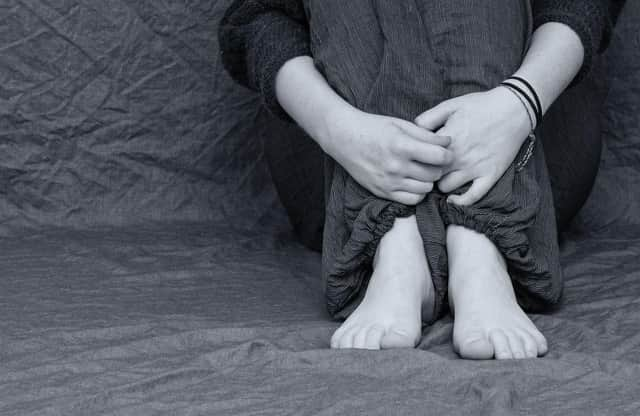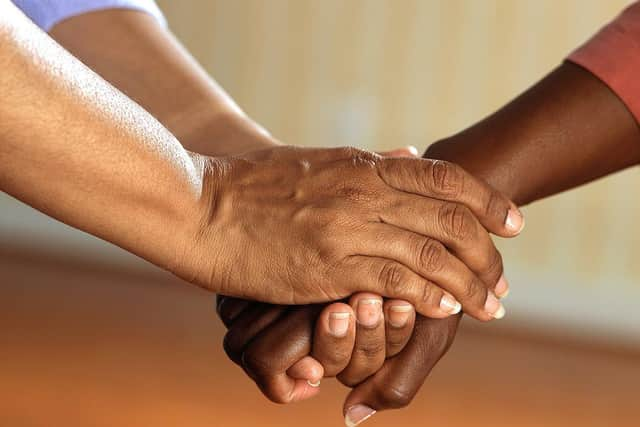The coronavirus and mental health: how are the people of Hastings coping with social distancing?


Staying indoors might be an important step in the fight against coronavirus, but people living with mental health conditions have found themselves in an even more vulnerable position. With jobs evaporating and social spaces like bars, cafes and the gym no longer accessible, Those people are taking small steps to cope with big social change.
According to Wendy Pritchett, a St Leonards based counsellor with 10 years of experience, a lot of the risk comes from exposure to negativity online. She said: “anxiety feeds anxiety. People sit in front of their radios, TVs or on Facebook, hanging on every single word and actually not realising that this is escalating their anxiety.”
Advertisement
Hide AdAdvertisement
Hide Ad“They are anxious and they want to see if other people are anxious, they will find that person- often through social media- and hook on to them. In one way, it’s really nice to know there are people out there who feel the same way. They will feel connected to them, but then it’s like ‘actually I’m more anxious now than I was before.’”


Though social media helps us connect with others, it is also sometimes risky, especially during a crisis like this, when the news can have such an immediate effect on people’s lives.
For people like Thea Cook, a retail worker living in Hastings, that psychological theory is an every day reality. Her mental health conditions have made it hard to cope with the pandemic’s very real effect on her community, especially the way those effects have manifested online.
She said: “I find it hard seeing the negativity on Facebook. Pictures of empty shelves, for example, terrify me, even though I know I have lots of food in. I just get anxious around any sort of negativity, really. My brain just soaks it up and adds it to things.”
Advertisement
Hide AdAdvertisement
Hide AdNegative news cycles are not the only thing affecting Thea, She also struggles with being unable to travel on her days off. In the past, day trips to new places have helped calm her anxiety, but that’s no longer possible now that the lock down is in full effect. . She said: “One of my favourite things to do is hop on a train and go out for a day. I can’t do any of that now, or for the foreseeable future and I worry that my favourite places won’t be open again once this is over.
Rachel Searle, a 39 year old former care worker who also struggles with anxiety and depression added: “not being able to see my close friends is hard.
“I’m scared being so isolated will make it hard to return to my routine. Some days, it’s already difficult enough”.
For Rachel, the scarcity of essential goods is another huge worry. She’s concerned that, since she can’t afford to buy items in bulk, she won’t always be able to get what she needs, something which makes her preexisting conditions worse.
Advertisement
Hide AdAdvertisement
Hide AdIt’s an issue she shares with former support worker Ali Hammond. Alongside her depression, Ali struggles with chronic fatigue and Fibromyalgia, health problems which make getting basics like bread, milk, eggs and pasta a daily struggle.
She said: “when you can’t get the items you desperately need, you start to worry. That’s when the depressive thoughts start to creep in. It’s a vicious cycle.”
For counsellor Wendy, there is not a ‘one size fits all’ trick to social distancing and mental health. To her, the key is establishing a routine and sticking to it as closely as possible. It is all about small, but crucial day to day decisions.
She said: “It’s really important to have structure.
“We need to eat well, sleep well and keep moving. Think ‘okay, I’m going to get up in the morning, I’m going to do some breathing or stretching exercise, then I’ll have breakfast, then I’ll do some work, then I’ll go out for a walk, then I’ll practice some mindfulness.
Advertisement
Hide AdAdvertisement
Hide Ad“If you need to, make a rigid structure and stick to it. It will be what gets you through the hard, early days and weeks as we adjust to changing circumstances.”
Within that structure, Wendy makes clear that it is important to stay healthy: to sleep well, eat nutritious, balanced meals, get regular exercise and, if necessary, practice mindfulness.
All of that daily work should give people with mental health conditions a strong foundation from which to manage their mood and escape negative thought cycles. To Wendy, a positive mindset is key to making do.
She said: “It’s about accepting that there’s nothing we can do. What we can control is our reaction to it. Think about what you can use this down time for. Can you learn new skills? Will it give you time to appreciate the little things? It’s about noticing all the stuff around us that’s good, rather than hooking into all the miserable bad stuff at the moment.”
Advertisement
Hide AdAdvertisement
Hide AdThough not all of them know it, plenty of Hastings residents have already taken Wendy’s advice.
Charlotte, 43, manages her PTSD with weekly therapy sessions, yoga, regular meditation and facetime calls with her friends. The combination of regular exercise and community contact has kept her feeling positive about social distancing, despite her concerns.
She urges people struggling to find their own network of support and use it to prop themselves up in difficult times. She said: “we need other people to listen and be there. Find your tribe, a group of people who have similar values, even if it means you have to open up your heart.”
Thea Cook adds: “It’s okay not to be okay. There’s nothing at all weird in feeling depressed or anxious, especially in a time of national crisis. In fact, now is probably the best time to be open about your mental health, as I imagine everyone’s feeling that way a little bit.”
Advertisement
Hide AdAdvertisement
Hide AdFor more mental health advice, visit Wendy’s website: http://pathfindercounselling.com/ w or, to speak to someone about your mental health urgently, call The Samaritans on 116 123, which runs a free mental health helpine 24 hours a day, 365 days a year.
Mental health support is also available through Anxiety UK, a nationwide anxiety support service: https://www.anxietyuk.org.uk/
A message from the Editor, Gary Shipton:
Thank you for reading this story on our website.
But I also have an urgent plea to make of you.
In order for us to continue to provide high quality local news on this free-to-read site and in print, please purchase a copy of our newspaper as well. With the coronavirus lockdown having a major impact on our town centres and many of our valued advertisers - and consequently the advertising that we receive - we are more reliant than ever on you buying a copy.
Our journalists are highly trained by the National Council for the Training of Journalists (NCTJ) and our content is independently regulated by IPSO to some of the most rigorous standards anywhere in the world. Our content is universally trusted - as all independent research proves.
Advertisement
Hide AdAdvertisement
Hide AdAs Baroness Barran said in a House of Lords debate this week on the importance of journalists: “Not only are they a trusted source of facts, but they will have a role to play in rallying communities and getting the message across about how we can keep ourselves and our families safe, and protect our NHS. Undoubtedly, they have a critical role.”
But being your eyes and ears comes at a price. So we need your support more than ever to buy our newspapers during this crisis. In return we will continue to forensically cover the local news - not only the impact of the virus but all the positive and uplifting news happening in these dark days.
We thank all our readers and advertisers for their understanding and support - and we wish YOU all the best in the coming weeks. Keep safe, and follow the Government advice. Thank you.